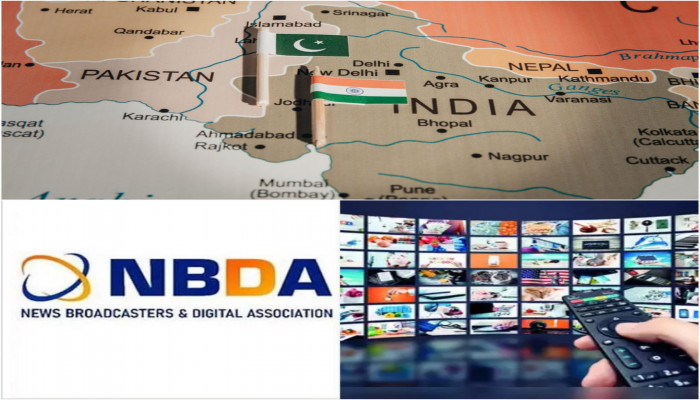Indian news debates witness major change as NBDA imposes ban on Pakistani panellists
- In Reports
- 12:55 PM, May 05, 2025
- Myind Staff
Amid escalating tensions between India and Pakistan, the News Broadcasters & Digital Association (NBDA) has published an urgent directive to its member channels, banning the inclusion of Pakistani panellists in Indian news debate discussions and programs. The directive, marked as “Urgent & Confidential” and signed by NBDA Secretary General Annie Joseph, highlights concerns from the Ministry of Information & Broadcasting about Pakistani commentators using Indian media platforms to spread anti-India narratives. The advisory blames specific foreign participants for engaging in “false propaganda against India” and utilising television platforms to threaten the country’s sovereignty.
The move follows a deadly terrorist attack on April 23, 2025, in Pahalgam, Kashmir, where tourists were targeted and killed. Authorities have connected the attack to terrorist groups based in Pakistan and specified two suspects as Pakistani residents. Although Islamabad has refused involvement, the incident further strained relations between India and Pakistan. In retaliation, India has taken several diplomatic and military actions, including conducting naval missile tests. Prime Minister Narendra Modi, addressing the attack, promised to relentlessly pursue those responsible, calling the attack an invasion on India’s security and harmony.
The NBDA’s recent advisory follows a more expansive government directive issued on April 26, 2025, advising media outlets to refrain from broadcasting live coverage of counter-terrorism operations. The government cited previous instances, like the 2008 Mumbai attacks, where live broadcasting was believed to have jeopardised national security. While some in the media have supported the NBDA’s move to maintain national unity and prevent negative narratives, others have raised unease about its potential impact on free speech and cross-border communication. Nevertheless, the advisory stresses the importance of compliance, reflecting a growing trend of controlling information during intensified geopolitical tension.
As tensions between India and Pakistan grow, the media’s influence on public opinion and its responsibility to protect national interests have been increasingly examined. Regulatory authorities are intensifying efforts to reduce external influence, especially during times of crisis.







Comments